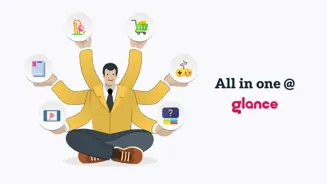Unveiling the Magic of Mentorship: A Guiding Light in Personal and Professional Growth. Read on to unravel the art of mentorship
In the bustling cities and quiet villages of India, mentorship is quietly
shaping destinies. It’s not just about climbing the career ladder; it’s about personal growth, finding direction, and unlocking potential.
A good mentor can be like a guiding star, helping you navigate the complexities of life and career. Finding the right mentor and, equally important, being a good one yourself, can make a world of difference.
This article delves into the power of mentorship, offering practical tips on how to find the right guide and how to become a mentor who truly makes a positive impact.
This journey is less about strict instruction and more about supportive encouragement which helps individuals to carve out their own path to success.
Finding a mentor is about values and experiences, not mass emails
Finding a mentor isn't about sending out mass emails or randomly approaching senior people. It's about identifying individuals whose values and experiences resonate with you.
Look for someone who not only excels in their field but also demonstrates qualities you admire – integrity, empathy, and a genuine interest in helping others. Attend industry events, workshops, and networking opportunities to meet people and observe their interactions.
Consider seeking mentors from diverse backgrounds and perspectives, as they can offer unique insights that broaden your understanding. Remember, the most effective mentorships are built on mutual respect and a genuine desire to learn from each other.
Introspect goals and needs before seeking a mentor for guidance
Before you even start searching for a mentor, take a moment to introspect. What are your goals? What skills do you want to develop? What areas do you feel stuck in? Having clarity about your needs will help you identify mentors who are best equipped to guide you.
Also, be prepared to articulate your aspirations and demonstrate your commitment to growth. Mentors are more likely to invest their time and energy in individuals who are proactive, receptive to feedback, and genuinely motivated to learn.
A mentor is more of a guide than an instructor and hence having personal clarity aids in the mutual benefit and development.
Approach potential mentor respectfully with clear request and structured plan for guidance
Once you have identified a potential mentor, approach them with a clear and concise request. Explain why you admire their work and how you believe their guidance could benefit you.
Be specific about the areas you'd like to discuss and propose a structured approach, such as regular meetings or check-ins. Remember that mentors are busy people, so be respectful of their time and flexible in scheduling.
Prepare a thoughtful proposal outlining your goals and how you envision the mentorship working. This proactive approach demonstrates your commitment and increases the likelihood of a positive response.
Remember to always be polite and thankful if they accept, since there is never any obligation for them to accept.
Being a good mentee: prepare, listen, respect, share, gratitude
Being a good mentee is as important as finding the right mentor. Come prepared to each meeting with specific questions and topics you want to discuss. Actively listen to your mentor's advice and perspectives, even if they differ from your own.
Show gratitude for their time and insights, and follow through on any commitments you make. Always respect your mentor's confidentiality and avoid sharing personal information without their permission.
Remember that mentorship is a two-way street, so be open to sharing your own experiences and perspectives as well. Remember to show them respect at any cost, due to the effort and time they are spending on your development.
Mentorship benefits all; share knowledge, gain skills, give back
Mentorship isn't just for senior professionals; it's for anyone who wants to grow and develop. If you have experience and expertise in a particular area, consider becoming a mentor yourself. Sharing your knowledge and insights can be incredibly rewarding, both personally and professionally.
Mentoring others can help you refine your own skills, gain new perspectives, and build meaningful connections. It also fosters a culture of giving back and contributing to the growth of the next generation.
Look out for those who remind you of your past self and mentor them into a new direction in their lives. Becoming a mentor is a testament of your success and the responsibility that comes with it.
Mentoring requires empathy, patience, support, feedback, and empowerment for mentee growth
Being a great mentor involves more than just sharing your knowledge; it requires empathy, patience, and a genuine interest in your mentee's well-being. Create a safe and supportive environment where your mentee feels comfortable sharing their challenges and aspirations.
Offer constructive feedback, celebrate their successes, and help them learn from their mistakes. Be a sounding board for their ideas and a source of encouragement during difficult times. Remember that your role is to guide and empower your mentee, not to dictate their path.
Be someone who nurtures talent and helps your mentee grow and explore the possibilities of success.
Mentorship is vital for growth, fostering relationships, and shaping futures
In conclusion, mentorship is a powerful tool for personal and professional development. Whether you're seeking a mentor or aspiring to be one, remember to approach the relationship with intention, respect, and a genuine desire to learn and grow.
The bonds forged through mentorship can be transformative, shaping not only individual careers but also the future of businesses and communities across India. By embracing the power of mentorship, we can unlock our collective potential and create a brighter future for all.
With every mentor there is a new seed planted in someone's life, and may those seeds prosper and grow to be great trees.
AI Generated Content. Glance/InMobi shall have no liability for the content










